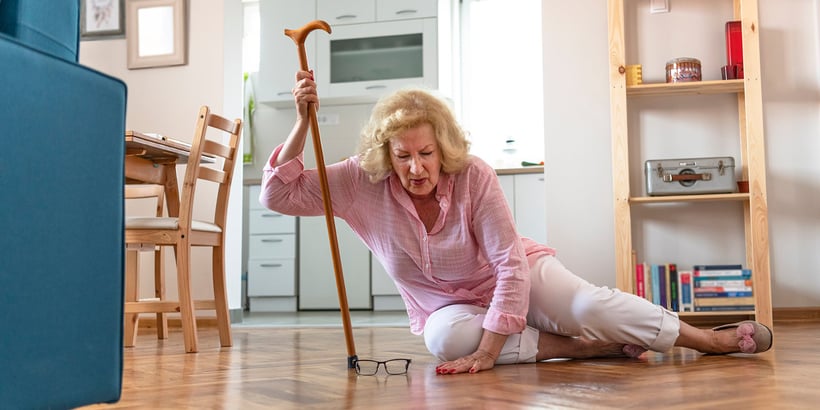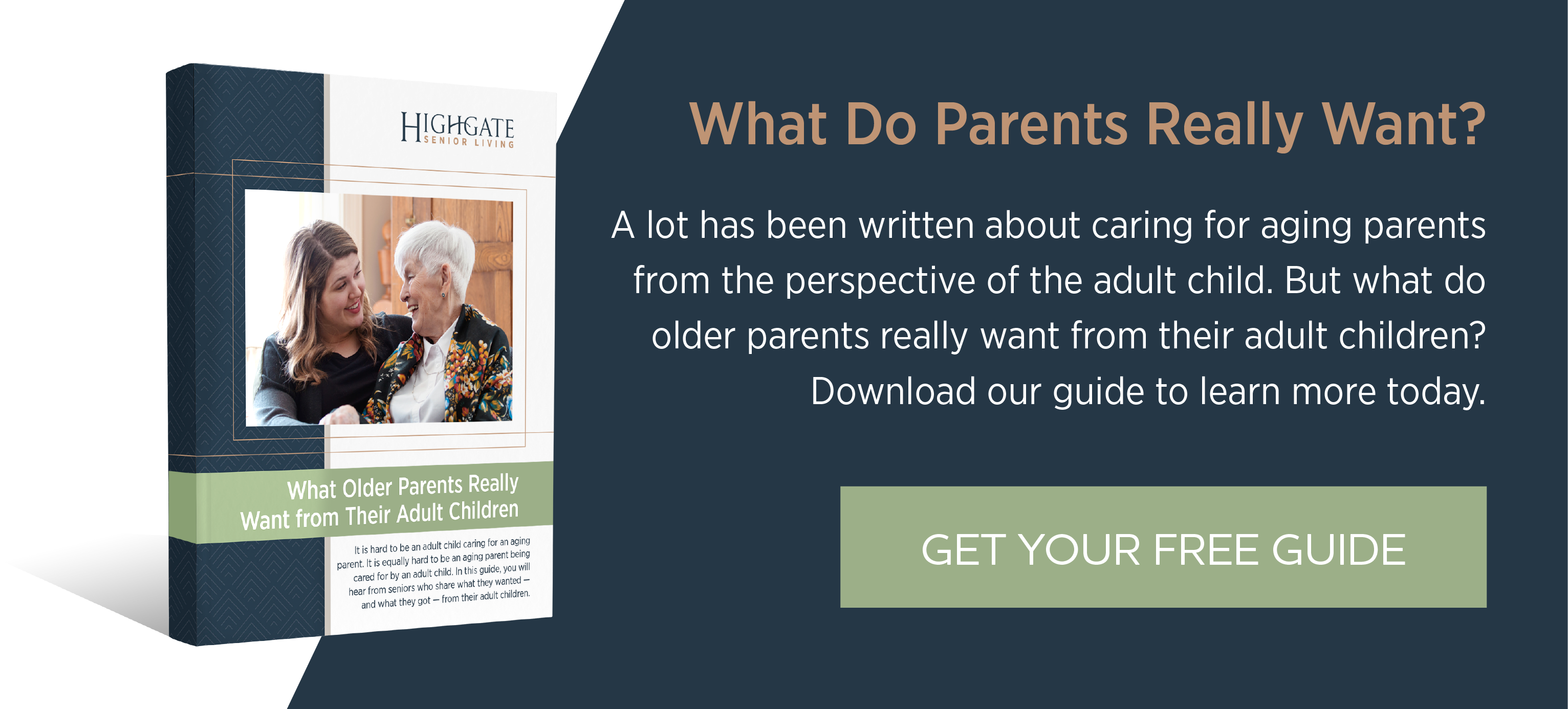 As your parents age, they will want both independence and support if they need it. But for many older adults, it’s hard to admit that they need help, especially if they fear that asking means they’ll lose control or will be declared incapable.
As your parents age, they will want both independence and support if they need it. But for many older adults, it’s hard to admit that they need help, especially if they fear that asking means they’ll lose control or will be declared incapable.
What many aging parents end up doing is withholding information from their adult children who might otherwise worry endlessly or try to prevent them from doing something that helps them maintain their independence.
Sometimes, this secret-keeping is harmless. You might call your mom every evening to check in and see what she has eaten for dinner. She might tell you she’s had a great supper when she really only had toast and tea. It’s not the end of the world, though over time poor nutrition can cause health issues or make health conditions worse.
However, if your dad is hiding things like falls or accidents, money shortages, or alcohol use in the hopes that he can continue living independently or out of fear of being a burden, it can actually put himself in danger — and only increases the likelihood that he will have to rely on you to care for him.
That’s why it’s important for family members to keep an eye out for signs your parents might benefit from some support when it comes to their health, safety, or general well-being. Here are five secrets some aging parents keep from their loved ones.
1. Falls
About 36 million older adults fall each year, but fewer than half tell their doctor. Is it possible that your loved one has fallen and covered it up?
Some seniors cover up a fall, particularly if it doesn’t result in bruising or broken bones. They might fear that you will try to get them to use a walker, or perhaps they don’t want to go to another doctor’s appointment — maybe they just don’t want you and your siblings to worry about them.
These concerns are understandable — your parents want to be independent for as long as possible, but you need to know about falls so you can help them to take actions that will reduce the chances of a bad fall.
2. Pain
Chronic pain is one of the most common conditions suffered by older adults, yet it often goes underreported.
There are many reasons older adults might ignore chronic pain. They might incorrectly assume that chronic pain is a natural part of aging. Some seniors fear additional examinations or medications. If your parents have experienced pain associated with a disease, they may fear that this pain means the disease is progressing.
These concerns are understandable, but as a caregiver, you can play a significant role in finding chronic pain relief.
3. Dizziness
It is common for older adults to feel dizzy from time to time. Feelings of dizziness can be caused by many different medical issues, including changes in blood pressure, poor circulation, medications, and anxiety.
But if your parent is feeling light-headed, faint, or unsteady, they might not tell you. Just like with falls and pains, they might not want to worry or alarm you, or they might be in denial about the effects of aging on their body.
No matter the cause, feeling dizzy can contribute to mishaps like falls, fainting, and car accidents. People who don’t examine the root cause of their dizziness also struggle more with depressive symptoms, feelings of good health, and fewer social interactions.
4. Financial Difficulties
Finances can be an uncomfortable topic for even close-knit families to talk about. If your parent’s income and savings begin to dwindle, or they get into the habit of making unnecessary or unwise purchases, it’s likely they’ll keep it to themselves. Seniors are also more likely to be targeted by scammers.
If your loved one is having financial difficulties, they may not tell you about it because they want to retain control of their finances, but without acknowledging money shortages, frivolous spending, or financial exploitation, things can quickly get out of control and lead to serious financial troubles.
5. Alcohol Use
You might be surprised to learn that 15% of people don’t start to drink heavily until they are older — and if your loved one always liked to imbibe, your family might not notice that their drinking is getting worse as they get older. It’s also common to misdiagnose alcohol use for other conditions related to aging, such as memory loss or a problem with balance.
Many elders are very clever about hiding their habits. According to the 2018 National Survey on Drug Use and Health, more than 1 in 10 seniors report consuming four to five drinks in about two hours during the past month, so keep your eye out for changes in mood or personality, empty alcohol or medication bottles, or frequent trips to the pharmacy.
How to Help Without Overstepping
There’s definitely a necessary balance between respecting your parent’s right to privacy and encouraging them to share information that’s important for you to know so an emergency can be avoided, especially when it comes to important information about their health, safety, or general well-being.
Often, parents are fearful of the loss of their autonomy. As much as you can, emphasize that you are their advocate. Instead of thinking about your relationship as one in which you provide care for your mom and dad, think about your relationship with your parents as a partnership. How can you partner with your parents to make sure they live their best life in old age?
For advice from aging parents themselves, download our eBook What Older Parents Really Want from Their Adult Children.






